
Szymon Śniegula, PhD
Szymon Śniegula is a young and ambitious researcher with a broad experience in genetic and phenotypic variation in key life history and behavioural traits at the multi-population level. His favorite study organisms are damselflies.
Szymon works for the Institute of Nature Conservation PAS, Krakow. This is the only institute in Poland focusing solely on protection and conservation of the biodiversity through studies on species, population and ecosystem levels.
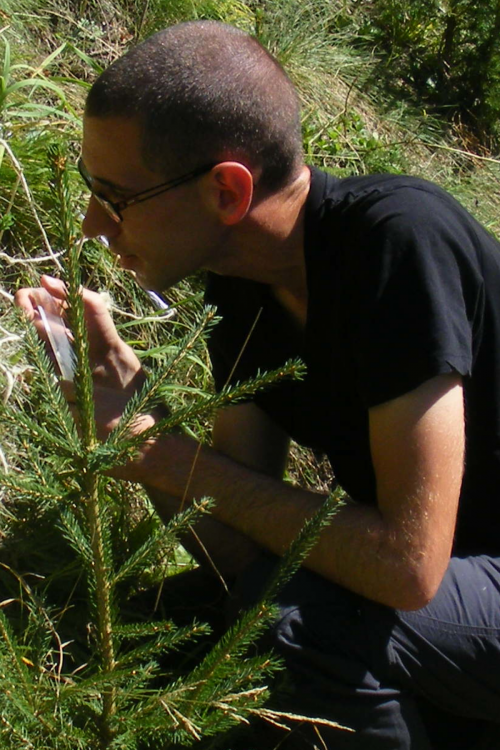
Guillaume Wos, PhD
Guillaume Wos is specialized in the fields of evolutionary biology, ecology and population genetics. He combines growth chamber and field experiments with phenotypic and next-generation sequencing data (i.e. RNAseq) analyses to study adaptation of various organisms to their abiotic and biotic environment.
Guillaume works at Institute of Nature Conservation PAS, on post-doc position within ECOPOND project, from February 2022.
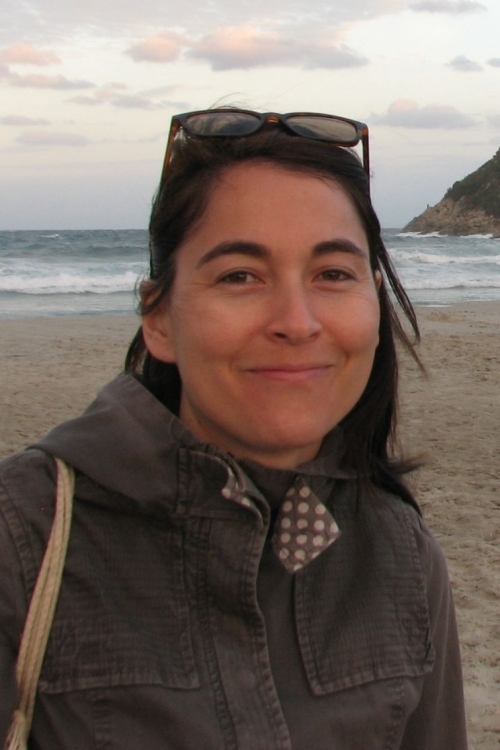
Gemma Palomar, PhD
Gemma Palomar is an evolutionary biologist interested in understanding adaptation in ectotherms. She merges genomics, immunology and disease ecology to investigate the processes that drive evolution. Gemma's ultimate research goal is biodiversity conservation. She is especially concerned about the emerging diseases that are decimating amphibian populations.
Gemma worked at Institute of Nature Conservation PAS, on post-doc position within ECOPOND project from June until December 2021.
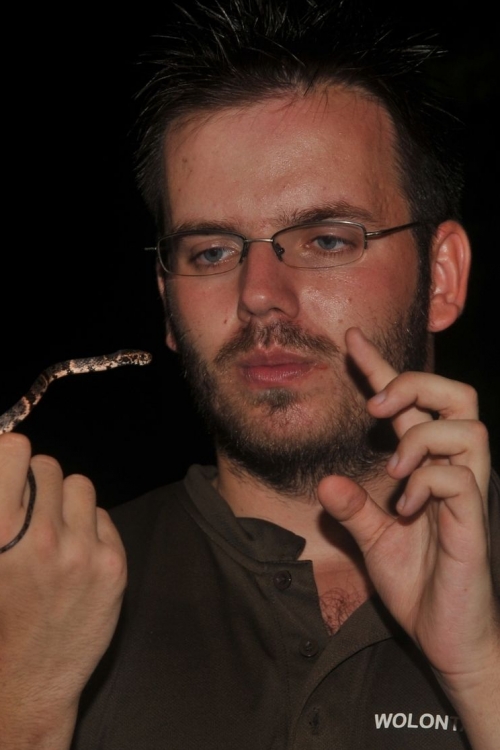
Bartłomiej Zając, PhD student
Bartlomiej Zajac received his M.Sc. in the Institute of Environmental Sciences Jagiellonian University; in his thesis he assessed habitat of smooth snake in Cracow. He is currently PhD student at the Jagiellonian University and works on reptile biology, ecology and population genetics in an urban gradient. He is also interested in faunistics and distribution as well as ecological variables affecting them in reptiles, amphibians and mammals.
Within ECOPOND project, working for Institute of Nature Conservation PAS, Bartek is responsible for amphibians sampling and swabbing (WP3&WP4).
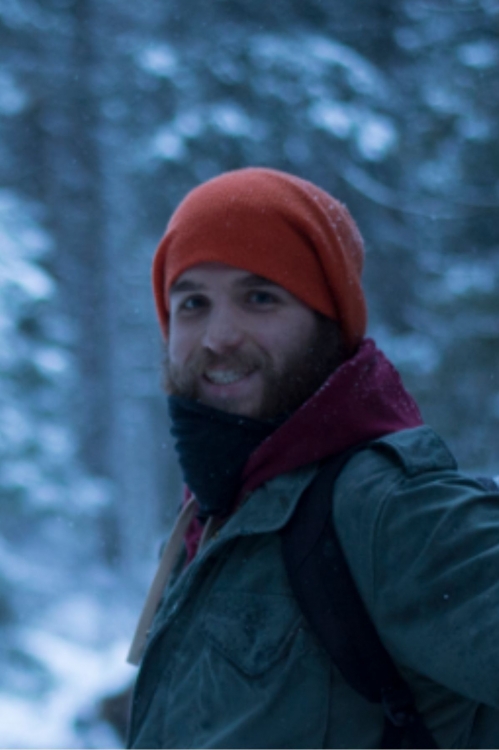
Artur Szarek, student
Artur Szarek is a student at the Faculty of Biology at Jagiellonian University and at the Faculty of Biotechnology and Horticulture at University of Agriculture in Krakow. He has so far been involved in two herpetological projects: as a student trainee in Herpetofauna Inventory of the Tatra National Park (Students Natural Science Club UJ in cooperation with TPN) and in the Herpetological Inventory on the territory of the Regional Directorate of State Forests in Krosno (project carried out by the Department of Wildlife Conservation, INC PAS).
At the ECOPOND project Artur assits in amphibians sampling and swabbing (WP3&WP4).
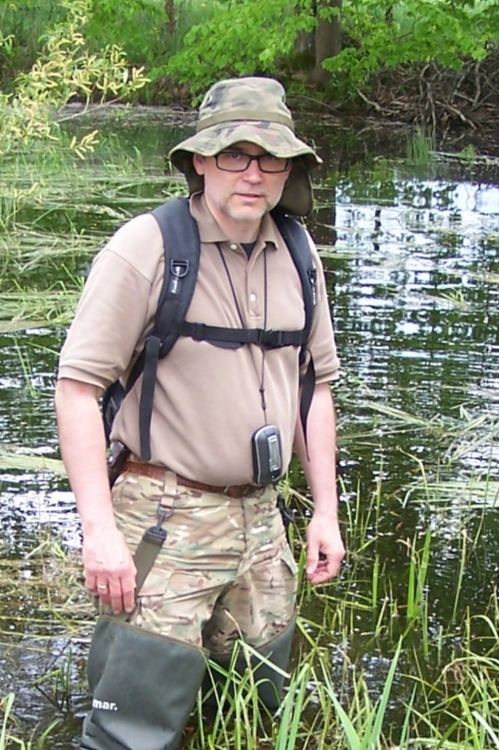
Paweł Janowski
Paweł Janowski is a graduate in environmental biology of the Department of Vertebrate Ecology and Zoology, University of Gdańsk. He is actively involved in issues related to biology and conservation of amphibians and reptiles within the activities of NATRIX Herpetological Society.
Within ECOPOND project, working for Institute of Nature Conservation PAS, Paweł is responsible for smooth newts sampling and swabbing (WP3&WP4).
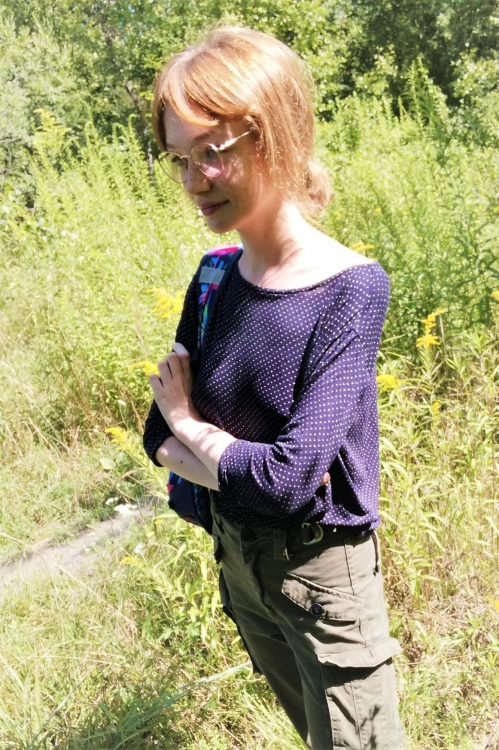
Aleksandra Rydzek
Aleksandra Rydzek is a student at the Faculty of Biology, Jagiellonian University. In her bachelor thesis she discussed the issue of sexual selection in marine mammals. Her internship, as well as a few months of work at the entomological collection, took place at the Natural History Museum of the Institute of Systematics and Evolution of Animals, PAS.
Within ECOPOND project, working for Institute of Nature Conservation PAS, Aleksandra helps at running the experiment on damselflies (WP5).
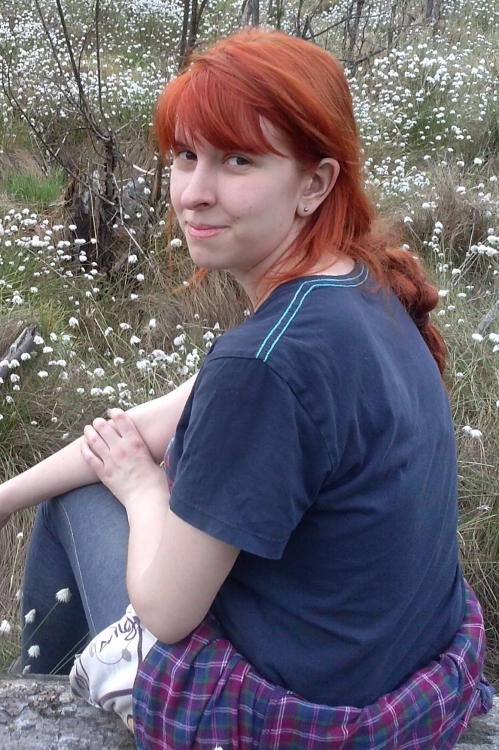
Maja Przybycień, PhD student
Maja Przybycień holds a M.Sc. degree of the Institute of Zoology and Biomedical Research, Jagiellonian University. In her research she deals with genetic and morphological variation in weevils of the genus Otiorhynchus. Currently Maja is an employee of the Department of Invertebrate Evolution at Jagiellonian University, where she is also working on her PhD thesis.
Within ECOPOND project, working for Institute of Nature Conservation PAS, Maja helps at running the experiment on damselflies (WP5).
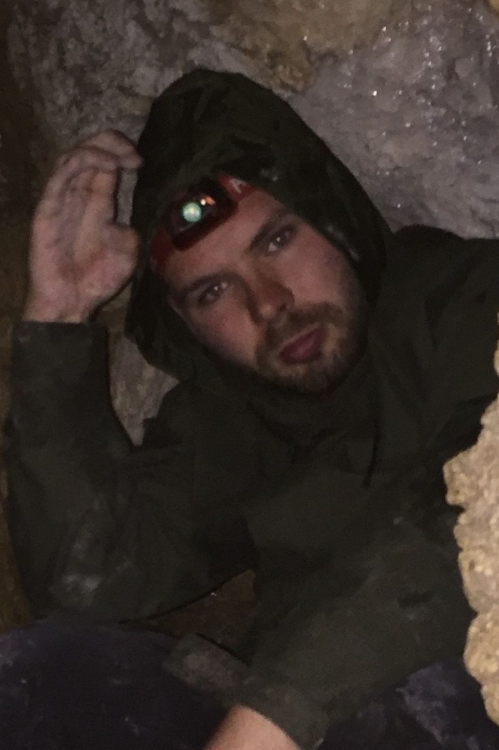
Antoni Żygadło, student
Antoni Żygadło is an Environmental Protection and Management student at Jagiellonian University. In his bachelor's thesis he focused on the topic of earthworm and soil ecology. Within his master's thesis Antoni took part in research regarding the evolutionary ecology of Rotifers in the Life Strategy Team of the Institute of Environmental Science of Jagiellonian University. He is interested in the ecology and evolution of Rotifers and Annelids.
Within ECOPOND project, working for Institute of Nature Conservation PAS, Antoni helps at running the experiment on damselflies (WP5).

Wiesław Babik, Prof.
Wiesław Babik is Professor at the Institute of Environmental Sciences, Jagiellonian University. He uses information contained in DNA sequences to understand various evolutionary processes. His favourite study organisms are amphibians.

Maciej Pabijan, PhD
Maciej Pabijan is a biologist at the Institute of Zoology and Biomedical Research, Jagiellonian University. He is interested in the ecology, evolution and conservation of amphibians and reptiles.
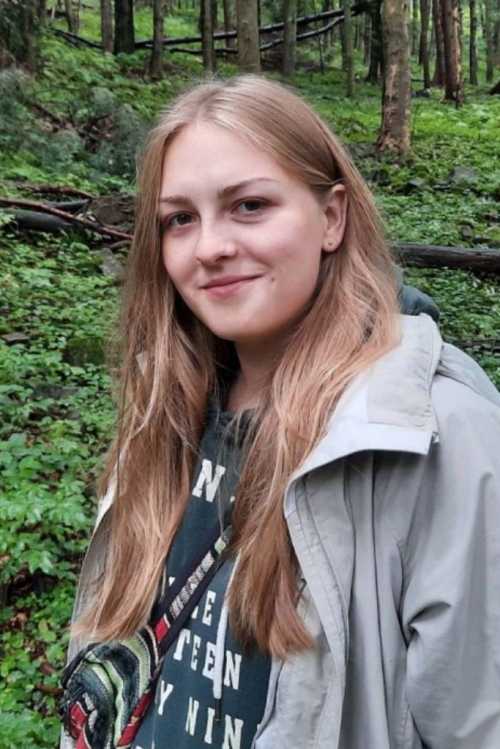
Marzena Marszałek
Marzena Marszałek holds a M.Sc. degree of the Institute of Environmental Sciences, Jagiellonian University. In her thesis she investigated the flow of the major histocompatibility complex genes between Triturus newts species. Marzena currently works in molecular laboratory of the Institute of Environmental Sciences, Jagiellonian University.

Karolina Bącela-Spychalska, PhD
Karolina Bącela-Spychalska is an associate professor at the Department of Invertebrate Zoology and Hydrobiology, Faculty of Biology and Environmental Protection, University of Lodz. The problem of diversity loss which is observed nowadays and human impact on that process are close to her scientific field. However, she is focused mostly on invasive species (their biology and ecology) in inland waters, parasitism in biological invasions and application of molecular methods in phylogeography, phylogeny and identification of organisms.

Katarzyna Janik-Superson, PhD
Katarzyna Janik-Superson is an adjunct at the Department of Invertebrate Zoology and Hydrobiology, University of Lodz. She is geneticist, microbiologist and chiropterologist, dealing with mutations, genetic diversity, population genetics, and environmental research focusing on biodiversity using genetic metaanalyzes of bacteria, fungi, invertebrates and vertebrates based on environmental DNA. She also is very active in the studies focused on the protection and ecology of bats, including analyzing their gut microbiome and diet composition with NGS sequencing. She is an amateur speleologist and nature photographer.

Grzegorz Tończyk, PhD
Grzegorz Tończyk is an adjunct at the Department of Invertebrate Zoology and Hydrobiology, University of Lodz. He is an entomologist, focusing on dragonflies, mayflies, stoneflies and aquatic and semiaquatic bugs. Main areas of his scientific activities are faunistics, zoogeography and ecology of aforementioned groups of insects. He is a specialist in identification and ecology of macrozoobenthos as well as in methodology of biomonitoring of inland waters in Poland. Author of numerous studies upon protection of aquatic habitats and species in protected areas including National Parks, now also involved in PolBol project, being responsible for replenishment of DNA barcode reference library, focusing on aquatic insects. Moreover, he is an amateur photographer of nature and fancier of macro photography.

Monika Baranowska, PhD student
Monika Baranowska is a PhD student at the Department of Invertebrate Zoology and Hydrobiology, University of Lodz. She is a microbiologist and molecular biologist dealing with assessing the genetic diversity of a variety of model organisms starting from isolation of DNA and RNA from various biological materials to the creation and sequencing of genomic and metagenomic libraries. In addition, nowadays she is working in the COVID-19 diagnosis laboratory. Apart from her “laboratory” life, she is a passionate swimming instructor.

Dominik Strapagiel, PhD
A microbiologist Dominik Strapagiel is a head of Biobank Łódź®️ (University of Lodz). He has wide experience in a range of novel technologies and took part in a number of NGS sequencing projects, mostly dedicated to genetic variability of modern humans and historical populations. Other projects included bacterial and fungal microbiome metabarcoding as well as studies upon biodiversity based on environmental DNA. He actively participates in the process of Poland's accession to BBMRI-ERIC - an European research infrastructure for biobanking, and since 2014 he has been the national delegate to the BBMRI-ERIC Assembly of Members and is a member of the BBMRI-ERIC Financial Committee.
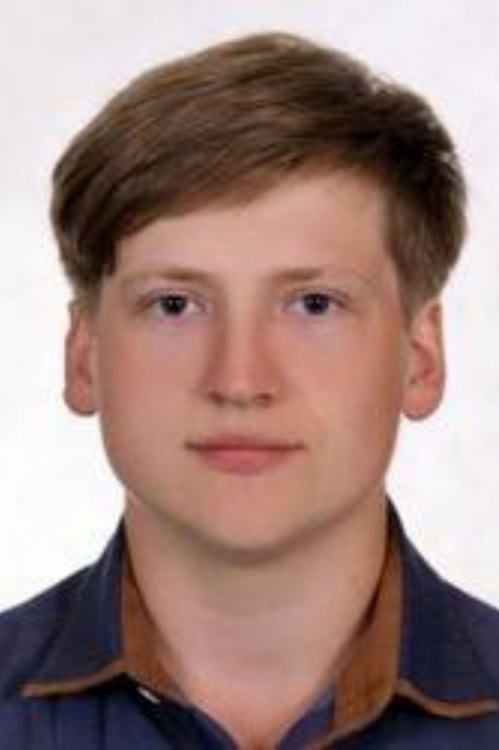
Dawid Krawczyk, student
Dawid Krawczyk studies data analysis at the Faculty of Mathematics and Computer Science, University of Lodz. He specializes in machine learning and data processing. He knows many programming languages as well as he knows and understands data modeling methods. Additionally, 'after hours' Dawid is a programming trainer working with children and teenagers.
Within ECOPOND Dawid is involved in metabarcoding and also runs the bioinformatic and statistical analyses.
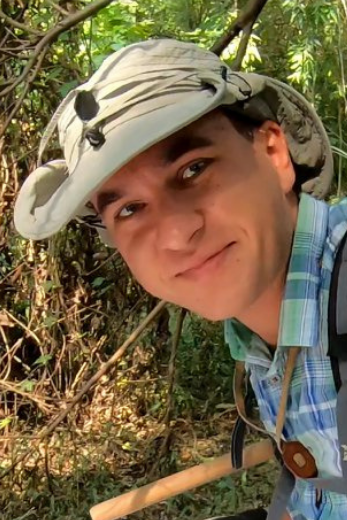
Łukasz Trębicki, PhD
Łukasz Trębicki is a lab technician at the Department of Invertebrate Zoology and Hydrobiology, Faculty of Biology and Environmental Protection, University of Lodz. Łukasz is an arachnologist interested in systematics and evolution of jumping spiders from Southeast Asia and Australia, as well as in ecology of spiders in agrocenoses. As a team member of the project 'Polish barcode of Life', Łukasz is responsible for DNA barcoding of variety of invertebrate taxa.
Within ECOPOND Łukasz helps the UŁ team at water sampling.

Annette Taugbøl
Annette Taugbøl is interested in conservation biology and how animals are affected by human impacts. She has experience in different types of experimental setups and lab work, as well as field work with live animals, eDNA sampling, statistical and genetic analysis of data.
Annette works at The Norwegian Institute for Nature Research (NINA) in Lillehammer.
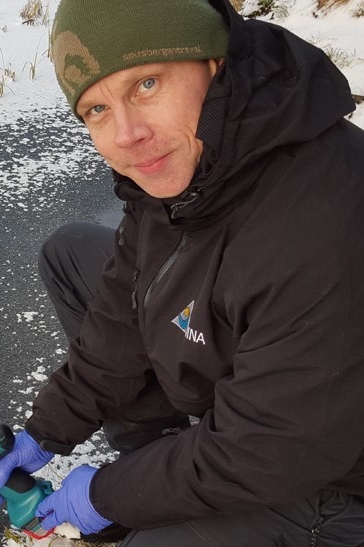
Frode Fossøy, PhD
Frode Fossøy is a senior scientist with a broad background in molecular ecology and biodiversity research with experience from large-scale studies in Europe, North-America, Africa and Asia. His expertise lies in developing genetic tools for applied science and management authorities with a strong emphasis on eDNA. He heads the eDNA research at The Norwegian Institute for Nature Research (NINA) and has developed state-of-the-art eDNA sampling methodology and analyses for monitoring fish, amphibians, bivalves, insects and parasites for both aquatic and terrestrial ecosystems.
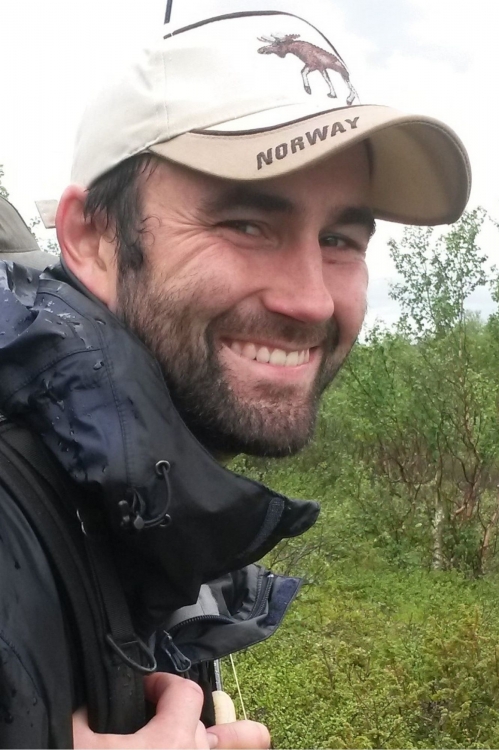
Kim Magnus Bærum, PhD
Kim Magnus Bærum is a quantitative ecologist with a wide range of research interest, although with focus on understanding environmental effects on population dynamics of fish and newts, spread of alien freshwater species and bycatch in fisheries. He has a PhD in climate effects on population dynamics of brown trout, and now leads projects with the aim to develop statistical models that can combine multiple data sources to make better inference about the ecological effects of for example climate change in interaction with a multitude of other environmental variables. Kim Magnus works at The Norwegian Institute for Nature Research (NINA) in Lillehammer.

Trude Vrålstad, PhD
Trude Vrålstad is senior scientist and head of the Fish Health Research Section at the Norwegian Veterinary Institute. She has a PhD in mycology, and special research interests include molecular diversity and evolution of symbiotic and pathogenic fungi and oomycetes. She has long experience with aquatic animal disease diagnostics and environmental DNA monitoring.

David A. Strand, PhD
David A. Strand is a senior scientist within the Fish Health Research Section at Norwegian Veterinary institute. David has a PhD and broad background in aquatic ecology, and has long experience and expertise with the development and use of environmental DNA methods for field monitoring of aquatic pathogens and their animals hosts. He has also experience and research interests with environmental metabarcoding.